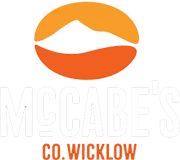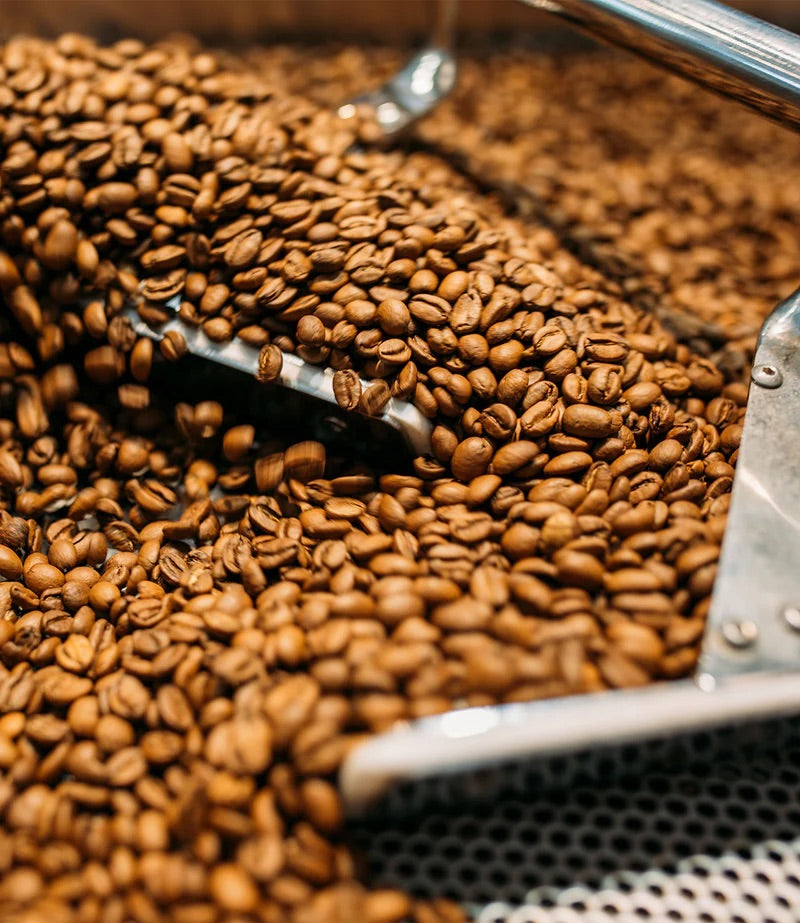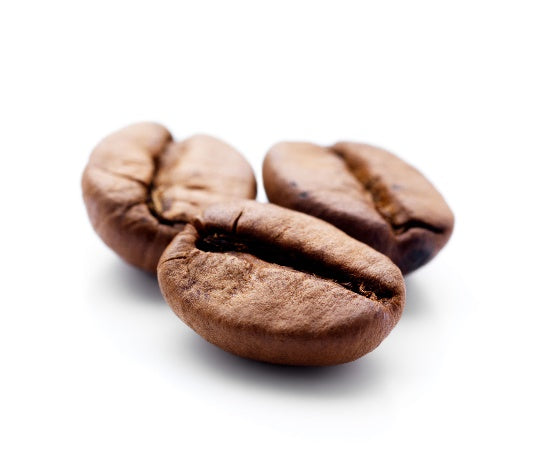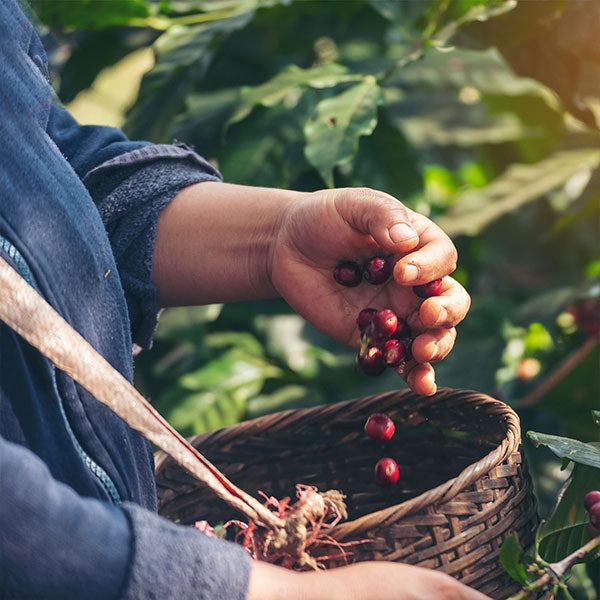Artisan coffee is grown, roasted and brewed with great care to maximise quality and consistency and taste.
The coffee revolution which started in Ireland in the mid-nineties has grown year on year and artisan coffee roasters have created a variety of outstanding quality coffees.
Many of these roasters have decided to only roast 100% Arabica Specialty coffee, with a cup score over eighty or more when tasted or cupped by qualified Q-graders.
Very few, if any artisan roasters use Robusta coffee as used by many of the larger scale commercial roasters.
McCabe’s Coffee which opened in the mid-nineties, has built a reputation in the coffee industry as quality artisan roasters supplying a range of award-winning single origin and blends to over 450 businesses in Ireland.
Growing Artisan Coffee

Artisan coffee is not just the responsibility of the roaster, farmers also play a role in the production of high-quality Specialty coffee.
With the growing demand for quality and a consumer move towards small drink culture, farmers are aware that customers require consistent, great tasting coffee produced in a fair and sustainable way.
Artisan coffee roasters consider the product from farm to cup and so will develop working relationships with growers and visit when possible.

Low quality commercial coffee used for cheaper supermarket brands is losing appeal with an increased interest in distinct flavours of single origin Specialty coffees from a specific area or experimental processes.
Artisan skills are needed to achieve this quality with considerable time required for certain processes including hand picking each cherry that contains two coffee beans, weed control, fertilizer application, pruning, washing, drying and constant monitoring for disease and insect infestation.
Roasting.

The skills of the roaster operator are important for all stages of roasting artisan coffee. This is defined as hand roasted coffee rather than computer operated roasting machines that load, roast, and cool the coffee with no input from operators.
The artisan roaster operator will typically weigh out the raw green coffee by hand before moving it to the loading hopper of the roasting machine. Every step of the roast is monitored carefully with the operator watching the colour and physical changes of the coffee as it roasts, listening for popping and cracking as the coffee moves through a range of chemical reactions and smelling each stage also.
The sampler is used many times in the roasting process to manage the roast profile and development. The operator has to make decisions about temperature and air control as the coffee roasts and this may vary considerably from hot days to cold days at different times of the year.
When the roaster operator is satisfied that the roast is ready to release, the drum door is opened and allowed cool while it continues to develop.
Light Roast Coffee.
Artisan coffee roasters must carefully plan the coffee they purchase. Coffee harvests occur at various times of the year and some origins have two harvests per year.

The best coffee will be mid harvest crop so roasters will typically purchase as much as they afford or store from this part of the harvest. Many customers and cafes like consistent flavour always, so the roaster either must manage this with blending of different origins or introducing new coffees throughout the year.
Commercial coffee roasters will typically use blends of multiple origins and not give detailed information on the packaging.
Artisan roasters will typically give detailed information on the countries of origin, the process and the tasting notes expected.
In addition, the roast date is on the packs, and the coffee is packed in resealable bags to maximise freshness. A short best before date is shown to ensure end users experience the best tasting coffee produced by both artisan farmers and roasters.
Resealable Packaging with valves and information.
Commercial roasters will give longer best before dates and may pack the coffee after long degassing periods which stales the coffee a little and then vacuum pack the coffee.
This will add longer shelf life to the coffee, but it stales quicker once opened as it has had no oxygen. Artisan roasters will promote sale of bean over ground coffee to maximise freshness and encourage customer to grind themselves to get the best possible extraction and taste.
The final stage of artisan coffee is when the barista grinds the beans for brewing. Perfect extraction requires careful monitoring of the espresso pour and making changes to the grinder and coffee machine every day.
Mass produced commercial coffee will typically be used for instant coffee, capsules, or fully automatic machines where little if no adjustment is made and the taste is average at best.
V60 Filter Brewing
The artisan barista takes pride and care in ensuring the coffee extracted is the best it can be for all drinks and all brew methods.
With the growing interest for milk in coffee, again, the barista will steam and stretch the milk to perfect the texture and temperature and then free pour this milk carefully blending it with the coffee to produce beautiful latte art.
End users search out the best cafes producing the highest quality artisan coffee and are willing to pay more for this. For home coffee enthusiasts, there are a range of excellent quality espresso machines and filter devices for those who prefer black coffee with subtle and delicate tasting notes.
Home brewing classes offered by coffee roasters can enhance the coffee experience with training of the wide variety of brewers and methods now available.
Barista Latte Art
Our Introduction to coffee class is a wonderful way to learn the artisan skills required to produce the perfect cup of coffee and will introduce the techniques for milk steaming and latte art.
Many artisan coffee roasting companies now offer an impressive range of quality coffees from the best growing areas and single estates in the coffee growing belt. Coffee roasters with a passion for sustainability will favour organically grown coffee using no synthetic fertilizer, and the coffee grows under the shade of trees which is better for flora and fauna. Cooperative produced coffee will also support multiple farms and therefore multiple families.
Ripe Coffee Cherries
Subscriptions and coffee clubs are a wonderful way to explore the world of coffee tastes with a different origin or process delivered each month. At McCabe’s Coffee, we offer 4 clubs to choose from including a single origin club, an organic club, a rich roast club, and the exclusive 90+ club where we only supply the rarest gems that must score over 90 cup scoring points. The clubs can be purchased as pre-paid gifts for a period of 6 or 12 months – the gift of artisan coffee, perfect for the coffee enthusiast.
Artisan coffee is the product of passion, hard work, and skill from farm to cup.
Once experienced, the delicious taste is hard to replace. Explore our range of hand-crafted coffees or learn more about our coffee subscriptions and classes held at the roastery by visiting www.mccabecoffee.com. Stay up to date with all our products, new releases, and special offers by subscribing to our newsletter.






Leave a comment
All comments are moderated before being published.
This site is protected by hCaptcha and the hCaptcha Privacy Policy and Terms of Service apply.